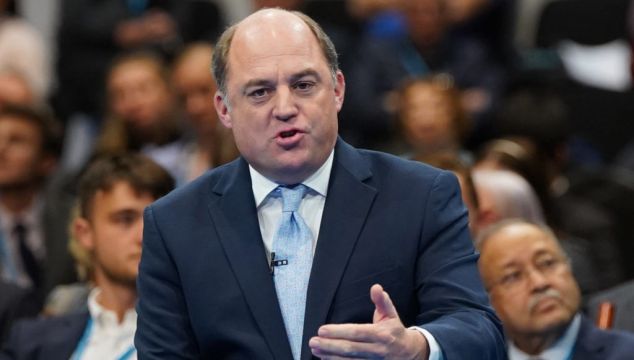British defence secretary Ben Wallace has admitted he is “not optimistic” a Russian incursion into Ukraine can be stopped as he prepares to meet his counterpart in Moscow.
Mr Wallace told the BBC from Germany there was still “a chance” an invasion could be halted, but added: “I’m not optimistic.”
The 51-year-old also confirmed to the broadcaster he would soon meet with Russian defence minister Sergei Shoigu in Moscow.
It comes after British foreign secretary Liz Truss said the UK is not ruling out support for personal sanctions against President Vladimir Putin in the event Russia invades Ukraine.
Ms Truss made the comments after US president Joe Biden suggested moving to penalise the Russian president could be an option in the case of an invasion.
When asked on Tuesday if he could see himself sanctioning Mr Putin in those circumstances, Mr Biden told reporters: “Yes, I would see that.”
Asked if the UK would support personal sanctions against the Russian president, Ms Truss told BBC Radio 4’s Today programme on Wednesday that the government had “ruled nothing out”.
“We have ruled nothing out in terms of sanctions, and in fact we’ll be legislating to toughen up our sanctions regime and make sure we are fully able to hit both individuals and companies, and banks, in Russia in the event of an incursion,” she said.
“What’s important is that all of our allies do the same, because it’s by collective action, by showing Vladimir Putin we’re united, that we will help deter a Russian incursion.”
The prime minister on Tuesday said Britain was prepared to deploy troops to protect Nato allies in Europe should Russia invade Ukraine, as he warned Mr Putin faced “ferocious” Ukrainian resistance.
Asked about this on BBC Radio 4’s Today, Ms Truss said: “We already deploy troops in Estonia as part of our enhanced forward presence. We are looking at what more we can do. We’re working very closely with allies.
“I had a meeting with the Nato secretary-general in Brussels earlier this week to discuss that, but the UK is already at the forefront of providing forces in Estonia and providing broader support across eastern Europe.
“But be in no doubt, Nato is determined to increase support on the eastern flank to support our Nato allies, who of course we have strong obligations to.”







